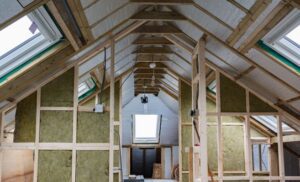
How To Plan, Budget And Manage Your Extension
4th July 2024
Planning Your Extension
Extension construction is not a one-size-fits-all endeavour. For your building journey to be successful, you must plan and manage it carefully because it will be specific to you and your home.
Whether you choose a wrap-around extension, a glazed single or two-storey extension, there are some crucial things to do right no matter what your project is. Each extension will have its own criteria.
How do you go from putting your ideas on paper to actually seeing them come to life if you’ve never constructed an extension before? Who do you first speak with? How should you set your budget? What is crucial knowledge for all aspiring extenders?
Our beginner’s guide breaks down some key aspects you should consider, from addressing queries concerning planning approval and the price of an extension, that will help launch your extension project.
Prior to Beginning an Extension
Make sure you’re informed of local and national construction news before beginning an extension project. This includes information on trades, materials, and scheduling changes.
The price increases and shortages of building supplies, as well as the scarcity of HGV drivers, are making headlines and having an impact on the construction industry. The construction sector is being affected countrywide by dwindling supply of essential building materials like roof tiles, cement, and a timber scarcity, and prices have increased for many goods.
The shortage is anticipated to persist, so this will have an impact on both your budget as inflated prices hit trades who then have to pass those increases onto you, the client, as well as the trades you want to hire (who are battling with backlogs from Covid, an increase in demand, and the material shortages).
How Much Does It Cost to Build an Extension?
What is the price of an extension? Any extender’s most important question!
The shortage of construction supplies is causing price increases for labour and materials across the UK, which will have an impact on most bottom lines. The cost of building an addition will also depend on its size, shape, and glazing.
For a reasonably typical single-story extension project that a builder manages on your behalf, you should budget between £1,800 and £2,300/m2 for the finished project. A two-story expansion will cost slightly less (due to more affordable space) and will likely cost between £1,500 and £2,000.
You might easily pay £3,000/m2 in some South and high-value areas of the UK that are beset by labour shortages, especially on smaller projects. Therefore, the cost of an 8x4m kitchen addition is between £50,00 and £70,000; a two-story addition on the same footprint costs about £100,000; etc. However, these numbers can be modified based on the build method and specification that are used.


How Can I Build an Extension Cheaply to Reduce Costs?
Selecting a less expensive construction system is one way to save costs. Concrete blockwork is easily accessible, and the majority of builders are familiar with how to use it. However, some contemporary building techniques, such as using structural insulated panels, could cost more up front but end up saving in labour costs, particularly when it comes to insulating your extension.
It will be less expensive to build an extension with a straightforward shape and design, such as a square or rectangle with a flat roof, than one with an angled roof structure and plenty of glass.
Working now will pay dividends later on in the project because additions may be designed and built on any budget. Find out more here.
Will a Home Extension Increase the Value Of My Property?
Balance is the key. Don’t overprice yourself if you plan to later sell the property; otherwise, you risk losing all of the money you invested in creating the addition.
Even while it will increase the amount of room in your home, building a modest house addition may not be as cost-effective in terms of how much it will increase the value of your home if you decide to sell it.
A larger addition should raise the final worth of your house, but since it will cost more to build, be careful not to spend more money than you will recover. Additionally, there is usually a price cap that you want to stay inside, so double-check your math.
Speaking with local real estate agents can give you a better understanding of the neighbourhood market and the price ranges of extended homes comparable to your own.
What to Take into Account Before Creating Plans
Before you start the process of having your blueprints drawn, there are certain crucial factors to think about, such as:
- The site’s soil type
- Nearby trees
- Any history of flooding
- Site access – rights of way
It’s crucial to let your insurers know about the work. While some may not offer coverage while the work is being done, others offer specific extension insurance packages. Get in touch with Extension Plans UK for any further information you require.
